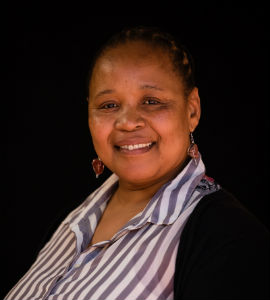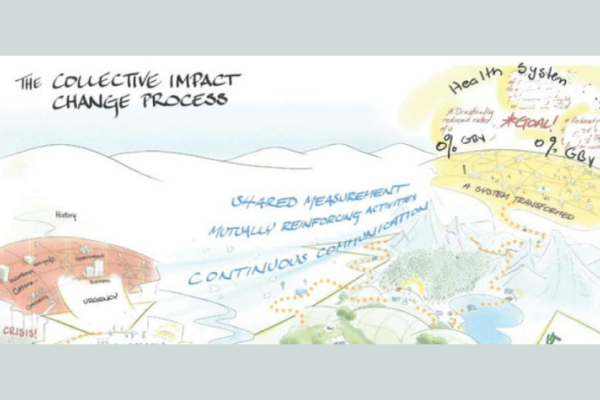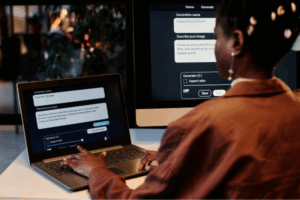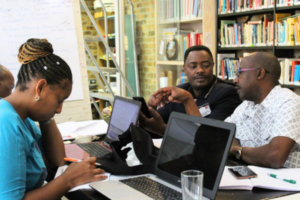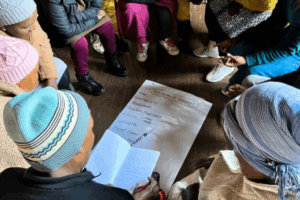“It feels like God took his people and put them in the Vaal and forgot about them.” Activist participating in Letsema Project
The above statement made by an activist when we began the Letsema Project in late 2013 is hard to forget because it sums up the state of affairs in the Vaal Triangle of Gauteng Province of South Africa. The Vaal has a history of violence that pulsates to date. The townships in the region were once a source of labourers for vibrant industries that have now been closed or restructured.
Thus, the majority of people living in the Vaal have trouble finding work and are very poor. This leads to, among other issues, violence, negative stigmas and abuse of alcohol and drugs. Women are especially affected by sexual and domestic violence. As for young girls and boys, many of them leave school due to poverty and other reasons. For example, girls are at risk of sexual abuse and unintended pregnancies and the boys are likely to die or join a gang – as a result of traditional initiation processes.
There’s poor delivery of municipal services in the Vaal region and little is happening to reverse the environmental degradation typical of former industrial areas. For instance, access to clean water is a big problem because there are metals in the soil that deter proper farming. Also, sewerage spills into the Vaal River and often the residents don’t have water because it’s disconnected so that the system can be cleaned. The townships aren’t lit well at night. Some people take the few light bulbs to make drug vaporizers. The drug of choice is ‘Nyaope’, a highly addictive and dangerous substance that’s common in impoverished townships in South Africa.
Gauteng Province had one of the highest number of service delivery protests in 2018, according to data company, Municipal IQ. The protests that the company reported as most violent
happened in marginalised townships such as the Vaal. The thing is, the protests don’t yield the results that the communities want. So, in blatant defiance, people have taken to blocking access roads to the townships during the night to emphasize the government’s apathy to resolving the crises.
The Labour Research Service (LRS) work in the Vaal involves a diverse group of people who came together to deal with gender-based violence. That the people are willing to work together towards a common goal is notable. Previously, they couldn’t work together without killing each other either because they were competing for the limited resources or the old and young members of the community were bogged down by furious blame games.
Many of the interventions in the area are brought by NGOs who unfortunately want to control the discussion. But, the LRS (together with our project partner,
Gender at Work) went in with a very different approach. We assisted a diverse group of community members to come together in a unique space to take ownership and develop actions of reducing the levels of gender-based violence in the community. We also introduced Tai Chi (a form of Chinese martial art), which especially helps survivors of trauma.
There are signs that the Letsema Project has started to chip away at deeply-rooted social norms. Members feel safe, respected and valued in the space we helped to create. There’s now ‘collective impact’ – the project members started taking ownership and felt encouraged to take the actions they designed themselves to end the violence. They have realised that working together yields better results and that we, like our government, are also guilty of mismanaging resources and not being fully accountable. Another important change is seen in what Letsema members like to call the “principle of taking something back home”. Due to widespread hunger and poverty, members agreed to share a portion of the meetings’ refreshments budget so that each person attending can buy some food for their family members back at home.
After four years of the project, participants can now manage their own resources and have the confidence to use emergent learning tools such as the BAR (
Before Action Review) to organise and facilitate their own meetings. The reflection process has helped them to hone their strategies and approaches to dealing with gender-based violence. We know they’re also using some of these resources and approaches in their own homes. Most importantly, they’re mentoring a new community to take up actions that can reduce gender-based violence.
Our methodologies, which include the creation of inclusive spaces and supporting participants to be proactive in finding answers to problems within themselves, contributed to the success of the Letsema Project. We approached the community not as experts, but as facilitators who’re also keen to learn and build something – and this was crucial for any success. This multi-year feminist-inspired social change project experimented with using a Gender Action Learning approach to change norms that reproduce GBV in one locality, continues to act as an inspiration. Letsema activists are mentoring a newly-established community in the Vaal called Savannah, using the emergent learning model and without LRS support to create more gender-equal norms that can prevent GBV in Savannah.
Letsema members speak of the possibility for change in Savannah, which is experiencing different forms of GBV against women, the elderly and people living with disability. Savannah community members have a strong desire to create more gender-equal norms that can curb GBV.
Letsema’s effort in Savannah united a core group of 15 activists and a broader layer of approximately 60 community activists to take up actions for reducing GBV in the community. The Letsema mentoring process includes supporting Savannah activists with the planning, design, facilitation and reflection on actions, as well as facilitating dialogue spaces with the broader community. Additionally, Letsema members are making use of the popular version of our Research Report to address a range of different stakeholders
Supporting Letsema has given us new insights into what it takes to work with a collective impact approach to address GBV. With the broad framing question, “What will it take to create 0% GBV in the Vaal?”, the activists in Letsema continue to inspire a broad layer of people in the Vaal to take action in tune with their environment and changing contexts. The LRS and Gender at Work have started to develop a model that works in a way that links and strengthens multi-actors in social norms change work. Also, we know more about strengthening the networks that are keen to deal with gender-based violence.
We are currently involved in a collaborative research project with Manchester Metropolitan University in the UK. The project seeks to establish how Letsema, a community group from a low-income and semi-rural context that aims to reduce GBV, can best scale-up their model of community action learning with other civil society organisations in South Africa. The direct reach of this research project is about 400 people in the Vaal.

